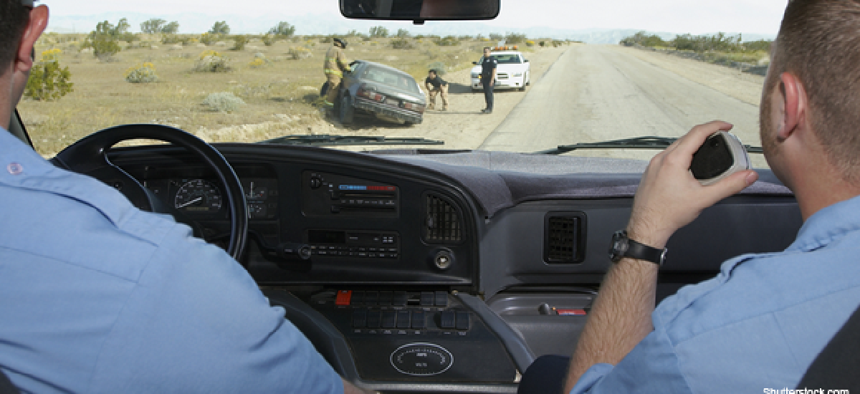3 reasons smartphones aren't ready to replace police radios

Combining cellular and other digital communications with traditional police radio networks increases interoperability and extends coverage areas, but there are limits to its uses.
San Luis Obispo County Sheriff Ian Parkinson says the California county’s new hybrid cellular and RF communications system is superior to its stand-alone land mobile radio network. Enabled by a digital dispatch platform from Raytheon and Twisted Pair, it leverages commercial cellular service to extend the police network to just about any smartphone.
But this system is a supplement to, not a replacement for, police radios. For the most part, land mobile radios do one thing: They let policemen talk with other policemen and firefighters talk with other firefighters. With the economical functionality of ubiquitous smartphones, why not do away with those expensive legacy radio systems completely?
There are a number of reasons why smartphones and cellular carriers are not ready to replace public safety radio networks. Three of them:
1. Bandwidth: Commercial carrier networks are consumer systems and are not dedicated to public safety use. This means first responders have to compete with consumers for bandwidth, which is likely to be at a premium during an emergency when police, firefighters and other safety personnel need it most. FirstNet, a nationwide public safety network now in the works, would be dedicated to first responders and built to more robust standards of reliability and availability, but that project is years away from completion.
2. Planned obsolescence: “Cell phones now are semi-disposable,” said Parkinson. They are upgraded and replaced every few years, and departments relying on them would have to ensure that applications and infrastructure supporting their use would continue to support new models and versions.
3. Durability: Most smartphones also are not ruggedized. “We have to be concerned whether they will be dropped,” Parkinson said, because they are not built for police and rescue work. They also do not have the battery life needed to be in use constantly through a 10- or 12-hour shift, which is one of the features of land mobile radio handsets.
Police radios are expensive and they only do one thing, but they do it well, Parkinson said. “Portable radios are costly because they are ruggedized and have that battery life.”





